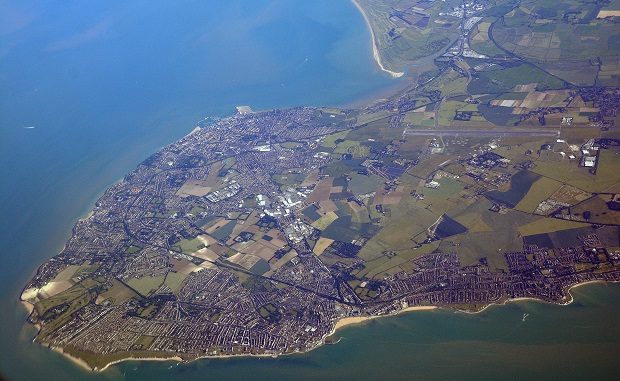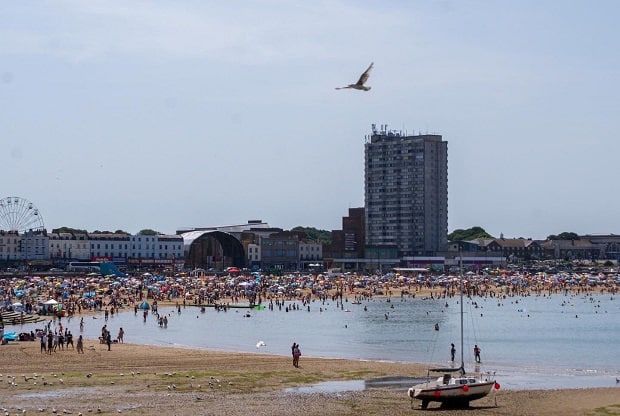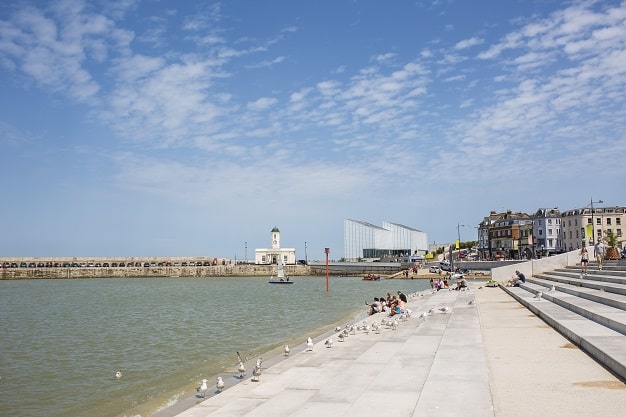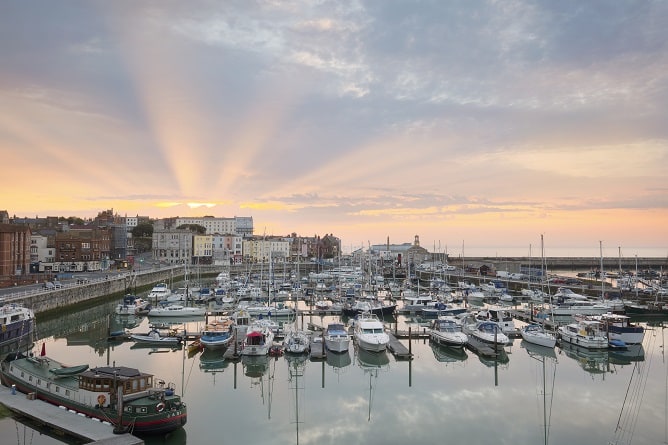
Daniel Hind has lived in Margate since 2014. He is the author of three books and his journalism has appeared in openDemocracy, the Guardian, the Times Literary Supplement and the London Review of Books. He is currently a doctoral student in political philosophy at the University of York.
In the first of a short series of pieces, Daniel looks at how new revenue could be brought into Thanet.

Thanet is an incredibly rich place. It’s just that many of the people who live here don’t have much money. In fact they don’t have much financial wealth of any kind. Sometimes we talk about this as if it is inevitable. Ramsgate and Margate used to be successful tourist resorts. But domestic tourism started to decline in the1970s, when people were able to enjoy reliable Mediterranean sunshine, and there is nothing to be done about that. Coastal towns struggle to attract inward investment, since at least half of their catchment areas are underwater, and no one can argue with the North Sea.
This is all at best misleading. At worst it is politicians’ patter; a way of justifying unemployment, inadequate housing, and worse. If climate was destiny, Disneyland wouldn’t have set up shop in one of the gloomiest spots in Northern Europe. Being on the North Sea coast doesn’t seem to have been a problem for almost every major town and city in Holland. Thanet is blessed with sandy beaches and marvellous architecture. It is 90 minutes away from one of the wealthiest megacities in the world. It has, as Turner said, and we like to repeat, the finest skies in all of Europe. There’s nothing inevitable about low wages, high rents, and poor housing.

Thanet’s wealth is natural; it is a function of geography and history. It is what economists call ‘economic rent’, unearned income that is not the result of enterprise and risk-taking. It is money that rolls in every year when people fancy a trip to the seaside. As long as visitors can get here easily, lots of them will come, whether we are good at hosting them or not. What matters is where they spend their money and where the money then goes. At the moment far too much of it is captured by landlords, and leaves to fund luxury lifestyles elsewhere. Not only that, many of the people who visit stay for the day and their money finds its way to a handful of locationally blessed businesses near the seafronts. Some of those businesses are independent. But many are national chains that send their money to head offices in London at the end of the working day. A flood of money pours into Thanet, but far too much of it pours straight out.

The increasing popularity of Thanet as a place to stay for days or weeks doesn’t translate into wealth and opportunity for most of the people who live here, because the money doesn’t stay long enough to fund regional investment.
The question then is this: how to we capture some of this torrent of unearned income, and use it to improve life for the people who live here, and make Thanet a more attractive place to visit, in a virtuous circle? How do we build up the tourism sector in a sustainable way, and then use it as the driver for broader, and deeper, economic and social development?
Getting our hands on the money
First, we need to get our hands on the money. There are two possible sources. Either one will make a difference. Together they will be transformative. To create new public revenues we need to tax short term rentals at rates that reflect the extent to which the money raised doesn’t reflect the effort and ingenuity of owners, but the fact that they happen to own a property near beautiful beaches, not far from London. This tax should be based on the rental value of properties; income over and above the rent that could be achieved through a standard 6 or 12 month tenancy should be taxed at a very high rate. At the moment Air BnB is offering ‘more than a thousand’ properties in Thanet over the first weekend of August. Apparently on those dates ‘there aren’t many places left in Thanet District, so now’s a good time to book.’ I will leave you to figure out how much money short term lets makes, and how much could be taxed and put to public use with no ill effects.

The other way to capture revenues from our natural advantages would be through a congestion charge on vehicles entering Thanet. A £5 or £10 charge could be levied by putting cameras on the four roads entering the district. If residents had a 100% exemption the sums raised would still be staggering. It might even reduce the tailbacks on the A299 every time the sun shines. People could avoid the charge by coming by train or by coach. The idea is not to penalise people without much money. The idea is to generate gigantic public revenues that can be put to good use here.
Of course there’s no guarantee that these new revenues will result general enrichment. Elected politicians do not seem to be good at building a vibrant local economy that works for everyone. A tidal wave of new money will have to be channelled through new institutions if it not to end up in the pockets of smooth-talking consultants, hedge funders, and frittered away on self-defeating white elephants. The money must be spent wisely, at the direction of the people who best understand the area and its potential, which is to say, all of us.4
These new, properly demo-cratic, institutions are the subject of the second article in this series. The third will trace the route to them, and a new deal for Thanet, via the ballot box.

